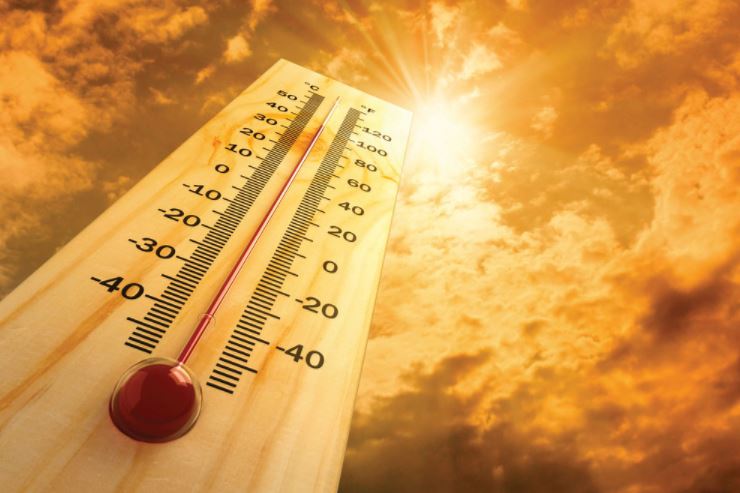HOUSTON — With the temperature reaching into the 90s throughout this weekend, the Houston Fire Department reminds citizens about the importance of taking safety measures when outdoors to avoid heat-related medical emergencies, this also includes making sure caregivers “Look Before They Lock” for children left in vehicles.
Before conducting outdoors activities and feeling thirsty, drink plenty of water and electrolyte-replacement beverages. Avoid beverages or food sources with caffeine, alcohol or large amounts of sugar because these can actually result in the loss of body fluid. Most popular sodas contain high levels of sugar and should be avoided when conducting strenuous activity. Avoid drinking alcohol the evening before conducting strenuous exercise as alcohol increases .
Conduct outdoor work or exercise in the early morning or evening when it is cooler. Individuals unaccustomed to working or exercising in a hot environment need to start slowly and gradually increase heat exposure over several weeks. Take frequent breaks in the shade or in an air-conditioned facility.
A wide-brimmed, loose-fitting hat that allows ventilation helps prevent sunburn and heat-related emergencies. A tight-fitting baseball cap is not the best choice when conducting strenuous outdoors activities. Sunscreen also helps protect injury from the sun’s rays and reduces the risk of sunburn. Wear lightweight, light-colored, loose-fitting clothing that permits the evaporation of perspiration. Do not leave children, senior citizens or pets unattended in a vehicle.
Common heat-related medical emergencies include: heat cramps, heat exhaustion and heat stroke.
• Heat cramps are muscle pains or spasms that typically occur in the abdomen, arm, and legs in association with strenuous activity. If you have heart problems or are on a low sodium diet, get medical attention for heat cramps. If medical attention is not necessary, take these steps: Stop all activity, and sit quietly in a cool place, Drink clear juice or a sport drink , Do not return to strenuous activity for a few hours until after the cramps subside because further exertion may lead to heat exhaustion or stroke. Seek medical attention for heat cramps if they do not subside in one hour.
• Heat exhaustion is the body’s response to an excessive loss of water and salt contained in sweat. Signs include profuse sweating, paleness, muscle cramps, weakness, dizziness, headache, nausea or vomiting, a weak-but-rapid pulse and fainting. The skin may be cool and moist. If heat exhaustion is untreated, it may progress to heat stroke.
• Heat stroke occurs when the body’s temperature rises rapidly, the sweating system fails, and the body is unable to cool down. Body temperature may rise to 106°F or higher within 10 to 15 minutes. Heat stroke can cause death or permanent disability if emergency treatment is not given. Heat stroke symptoms include an extremely high body temperature (above 103°F, orally), red, hot and dry skin (no sweating), rapid and strong pulse, throbbing headache, dizziness, nausea, confusion and unconsciousness.
The HFD has partnered with State Farm Insurance to remind parents and caregivers to never forget or leave a child in a car and “Look Before You Lock”.
If children are trapped inside cars, it can result in heat exhaustion or heat stroke, leading to permanent disability or death in a matter of minutes. Heat stroke, also known as hyperthermia, can cause shock, seizures, irregular heartbeat, heart attack, and damage to the brain, liver and kidneys.
• National Stats indicate that even on “mild” days or if the window is “cracked” the inside of a vehicle can reach nearly 120 degrees. And remember children are more sensitive to heat, causing heat stroke. HFD recommends that parents and caregivers place their purse, phone, computer or wallet in the back seat as a reminder that they have a child in the car. Caregivers can also keep a stuffed animal in the car seat and when the child is put in the seat place the animal in the front with the driver and have a plan with the childcare provider to call you if the child does not show up for daycare.
• If anyone sees an unattended child in a car, they should call 911 and stay until help arrives.
• Pet owners are also reminded that pets who are left in hot cars, even for the briefest amount of time, can suffer from heat exhaustion, heat stroke, brain damage, and can potentially die.
Pool and water safety is also important as we try and stay cool during these hot temperatures.
• Active, focused, adult supervision is the most important safety measure to prevent a water-related tragedy involving a child. The vast majority of children who drown in pools do so in the backyards of their own homes or of relatives.
• HFD also recommends parents and guardians learn CPR. Seconds count if a person drowns and performing CPR quickly and correctly can save their life. For more information on local CPR classes, please contact the American Red Cross , your local hospitals or medical schools

